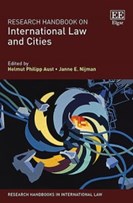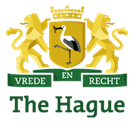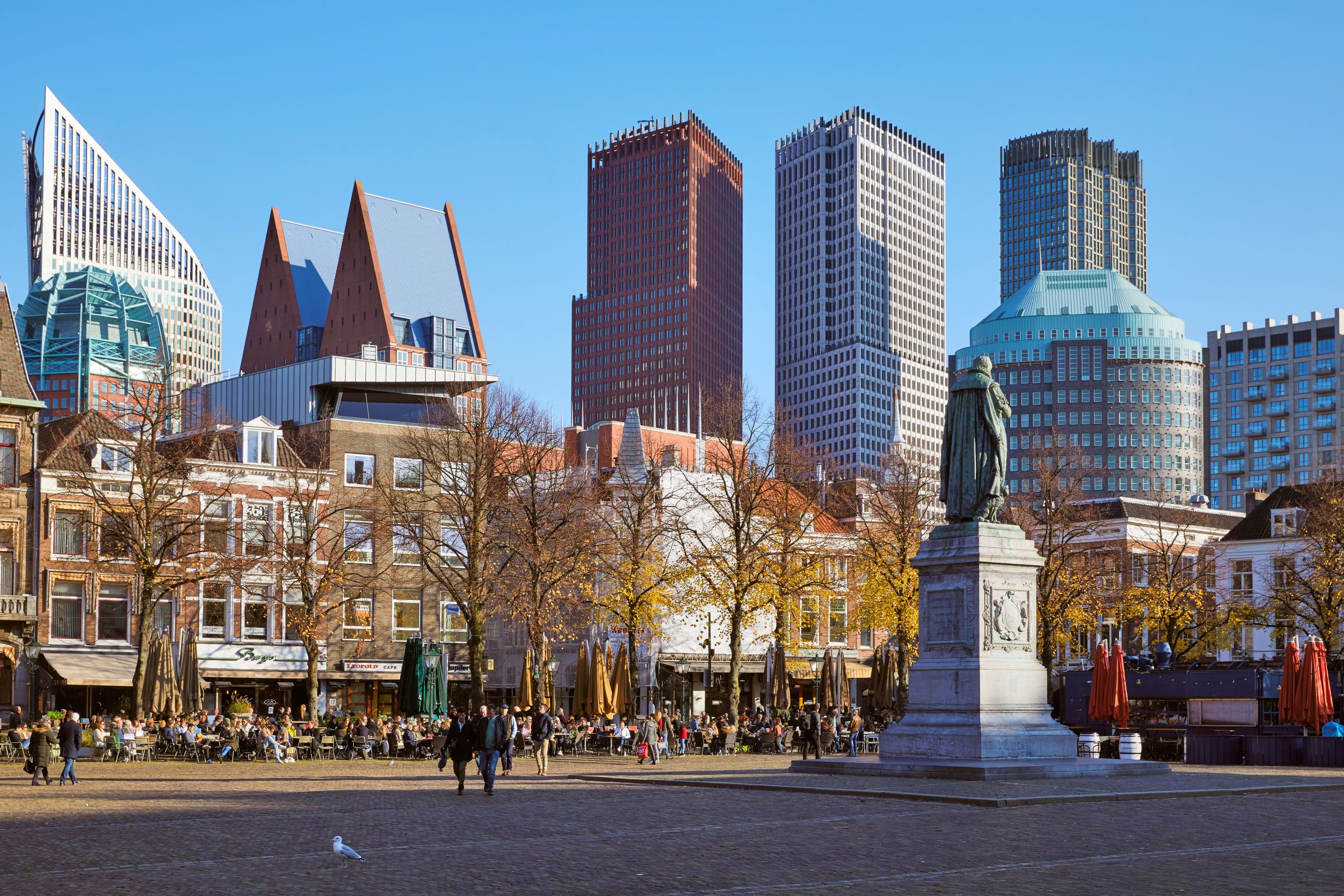Due to Covid-19 restrictions, this event will now take place fully online.
Dialogue and panel discussion on the occasion of the publication of the Research Handbook on International Law and Cities
The T.M.C. Asser Instituut cordially invites you to our dialogue and panel discussion on the publication of the ground-breaking Research Handbook on International Law and Cities, by editors Helmut Aust (Freie Universität Berlin) and Janne E. Nijman (Asser Institute). During the event, mayor of The Hague Jan van Zanen will receive the first hard copy. A panel of city network experts and international law scholars will discuss the Research handbook’s seminal findings, followed by a Q & A.
Today, 54 per cent of the world’s population live in cities and towns, and that number is growing every day. Cities and their networks aim to reshape international life, for example by being at the table of climate change negotiations – including the upcoming climate change conference COP 26 in Glasgow – or by turning to the United Nations for support for their housing policies and attempts to protect life in cities against the aberrations of the global economy.
The role of cities in international law and governance is changing as well. Globalisation and urbanisation have affected cities and their relationship to the international. Within the context of the United Nations, for instance, the New Urban Agenda was adopted in 2016 in Quito, pursuant to the Sustainable Development Goal 11, which stipulates the ambition of the international community to ‘Make cities and human settlements inclusive, safe, resilient and sustainable’. While the international has ‘turned urban’, cities turned global.
During an early evening event on November 17, we will discuss these developments first with the Mayor of the City of Peace and Justice, Mr Jan van Zanen. Mr Van Zanen has been active in transnational city networks in various functions and can reflect on these developments from first-hand experience. The discussion will then continue with a panel of experts who will shed light on the role of cities and their networks from various angles.
Watch the recording:
18.45 - Welcome by Prof. Janne E. Nijman
Conversation with Mr Jan van Zanen, Mayor of the City of Peace and Justice The Hague
19.15 - Panel discussion (Moderator: Prof. Helmut Aust, Freie Universität, Berlin)
Boris Tonhauser, Executive Adviser at PLATFORMA, a network of European local and regional governments and their associations engaged in development cooperation.
Prof. André Nollkaemper, Professor of International Law, University of Amsterdam, and the Dean of the Amsterdam Law School.
Prof. Dr Barbara Oomen holds a chair in the Sociology of Human Rights at Utrecht University. Prof. Dr Oomen further leads the NWO Vici project Cities of Refuge.
Dr Neila Akrimi Kemperman, PhD in European Development law. Member of the VNG International board of directors.
Q&A
20.15 - Concluding remarks by Janne Nijman and Helmut Aust
Yes, I will attend
About the Research Handbook on International Law & Cities

From climate change, to human rights and from migration to security issues: cities are on the frontline of global challenges. In their new and ground-breaking Research Handbook on International Law and Cities, editors Helmut Aust (Freie Universität Berlin) and Janne E. Nijman (Asser Institute) show the growing importance of the city in international law and governance, and the growing importance of international norms for cities. “No longer just sites of ‘the local’, cities have become spaces where global influences play out, and they have become actors that meaningfully contribute to shaping what we imagine ‘the global’ to be.”
In the Research Handbook on International Law and Cities editors Helmut Aust and Janne E. Nijman - co-chairs to the ILA Study Group on the Role of Cities in International law - shed light on the growing global role of cities, and build the case for a renewed understanding of international law, in light of this ‘urban turn’.
Aust and Nijman retrace how cities have gradually developed into internationally relevant actors, how this development started in other research disciplines and how slow the scholarship of international law has been catching up with this development.
Interdisciplinary group of scholars
The Research Handbook on International Law and Cities (Edward Elgar Publishing, 2021), with contributions from an interdisciplinary group of scholars, maps the practice of cities in various fields of international law, ranging from climate change to human rights, migration, health governance, transportation and security governance. The volume contains a state of the art overview of the literature in the growing field of international law research on cities as actors in international law, and on cities forming transnational networks and being impacted by normative expectations of good urban governance.
The authors further articulate how the turn of the city to the international also finds its limits in international law and institutions. Aust and Nijman argue that it is time to ‘take a further step in the production of international law scholarship towards better understanding how international law is transformed through the growing role of cities’.
Must-have reference book
The interdisciplinary group of contributing authors to the Research Handbook contains both authorities and emerging scholars with fresh perspectives, resulting in a wide range of geographical and theoretical perspectives. Combining doctrinal work and analysis of international practice with critical historical and theoretical contributions, this Research Handbook is a must-have reference book for researchers and students in the field of international law as well as other disciplines, including human geography, urban studies, sociology and political science.
Reviews
‘Aust and Nijman’s Research Handbook on International Law and Cities captures the complexity, and the controversy, of the relationship between cities and international law in all its splendour. It is is a skilfully designed and executed – and coherent – work from the leading legal scholars in the field. The reader is led through the history, structure and many of the current issues in what is an increasingly well-established field, both academically and in practice. There will be many more thematic avenues to explore but the principles and the path are set out here. This book will become a dear friend for many historians, political scientists and lawyers, to name but a few.’
– Robert Lewis-Lettington, UN-Habitat
‘Walter Benjamin – foremost among writers on cities – once observed (to paraphrase) that crafting a good piece of writing entails making, at once, a musical composition, an architectural construction, and a woven textile. The Research Handbook on International Law and Cities that Helmut Aust and Janne Nijman have assembled, working with Miha Marcenko and a superb array of contributors, succeeds in all these ways. Combining historical, conceptual, practical and critical takes on the role of cities in global phenomena, and on various manifestations of the global in the urban, it sounds provocative notes for future work. Its construction is at once magisterial and replete with intriguing openings. Its fabric is rich in theoretical and empirical threads of value to international law and cognate disciplines. As one sometimes does in a city, I lost myself in its pages, in the most pleasurable way. Regardless of their disciplinary or geographic starting point, all those who read it – or should I say, visit this volume’s many cities –are sure to emerge newly informed and inspired.’
– Fleur Johns, UNSW Sydney, Australia
‘This Research Handbook offers a rich array of insightful analyses about the way that international law is being shaped, interpreted, and implemented by cities. After exploring historical antecedents, the volume dives into structural aspects of cities within international law, before tackling the role of cities in reshaping particular subject matter areas, such as climate change, human rights and refugees. For those captivated by States and international organizations as the only actors that count, this volume will change your mind.’
– Sean D. Murphy, George Washington University, US and Member, U.N. International Law Commission
In collaboration with ILA Study Group on the Role of Cities in International law and supported by the Municipality of The Hague


